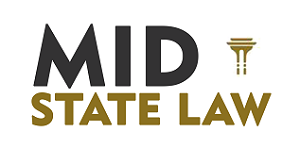Being a landlord comes with more than just collecting rent. It involves navigating a complex web of legal obligations and responsibilities. Even well-meaning landlords can find themselves in legal trouble if they don’t fully understand the laws that govern rental properties. In this post, we’ll explore five of the most common legal mistakes landlords make — and how to avoid them.
1. Improperly Handling Security Deposits
Security deposit laws vary from state to state, but one thing is universal: mishandling them can lead to costly consequences. A common mistake landlords make is failing to place the deposit in a separate, interest-bearing account (required in some jurisdictions), or not returning the deposit within the legally required timeframe after a tenant moves out.
How to avoid it:
- Familiarize yourself with your state’s specific laws regarding deposits.
- Always document deductions with receipts and a detailed move-out inspection.
- Return the deposit within the legal window, typically 14 to 30 days, depending on your jurisdiction.
2. Using Incomplete or Generic Lease Agreements
A vague or poorly written lease is a legal landmine. Too often, landlords use generic forms they find online that don’t comply with local laws or fail to address critical issues like maintenance responsibilities, late fees, pet policies, and subletting rules.
How to avoid it:
- Work with a qualified attorney to draft or review your lease agreement.
- Tailor the lease to reflect the specific terms of your property and comply with local laws.
- Make sure both you and your tenant understand the terms before signing.
3. Improper or Illegal Evictions
Eviction is a legal process — and skipping steps, such as self-help evictions (changing locks, turning off utilities), is illegal in virtually every state. Attempting to remove a tenant without a court order can lead to lawsuits, fines, and even criminal charges.
How to avoid it:
- Always serve proper notice as required by state law (e.g., a 3-day notice to pay or quit).
- File the appropriate paperwork with the court if the tenant does not comply.
- Let the sheriff or other authorized official carry out the eviction once it’s legally approved.
4. Discriminating (Even Unintentionally)
The Fair Housing Act prohibits discrimination based on race, color, national origin, religion, sex, familial status, or disability. Some states and local municipalities add even more protected classes, such as source of income or sexual orientation. Even an innocent comment like “This unit would be perfect for a young couple” could be considered a violation.
How to avoid it:
- Create a consistent, written tenant screening process.
- Avoid making subjective or personal judgments during the application process.
- Stay informed about federal, state, and local fair housing laws — and train your staff, if applicable.
5. Neglecting Property Maintenance and Repairs
Landlords have a legal duty to maintain habitable living conditions. Failing to address necessary repairs in a timely manner can not only violate housing codes but also give tenants the legal right to withhold rent, make repairs and deduct the cost, or even terminate the lease.
How to avoid it:
- Respond promptly to repair requests and keep records of all maintenance work.
- Conduct regular property inspections (with proper notice) to identify potential issues early.
- Understand your obligations regarding heating, plumbing, electrical systems, and pest control.
Final Thoughts
Renting out property can be a great investment — but it comes with serious legal responsibilities. A single misstep can lead to lawsuits, government fines, or damage to your reputation as a landlord. The good news? Most of these risks are avoidable with proper legal knowledge and the right support.
At [Your Law Firm Name], we help landlords stay compliant and protected. Whether you need help drafting a lease, navigating an eviction, or responding to a tenant complaint, our team is here to guide you every step of the way. We recommend okanogan landlord law firm.







